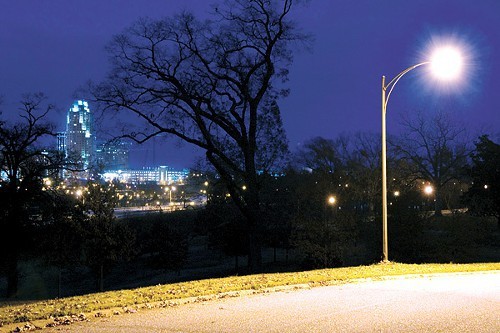
For purposes of this column, Raleigh is the center of the universe, which is as it should be. Is there a trendier city or state capital? In a bigger swing state than North Carolina? In the greatest nation on earthexcept if you’re listening to The Donald, who tells us we’re stupid. But I digress.
Looking back at my columns in 2015, my view, naturally, is out from Raleigh as we make our mark on the world. My obsessions are: 1) carbon emissions, which imperil the planet; and 2) the growing divide between the rich and the rest of us, a phenomenon so out of control that, as the Pew Research Center reported this month, America’s once-dominant middle-class no longer includes a majority of the population.
Separately, scholars Martin Gilens and Benjamin Page studied how public policy decisions are reached in the U.S. and concluded that we can’t even claim to be a democracy. We’re an oligarchy, where only the rich have influence. Yikes!
But I don’t mean to be all doom and gloom at the Christmas dinner table. Carbon emissions worsened in 2015, the economic divide is wider, and I agree with the pastoral letter issued by the United Church of Christ, whose congregationsincluding United Church of Chapel Hill, where I visitedare examining “the ongoing manifestation of racism evident in tragic and painful ways in our communities.”
Still, 2015 was a year for restoring hope that the future will be better. And Raleigh, if not the driving force, is poised to do our medium-size-city bit. Ditto Wake County. State government remains a white hole. (Not a black hole, since every top Republican is white.) But the year saw real headway at the presidential-election level thanks to Bernie Sanders, who’s got presumptive Democratic nominee Hillary Clinton stealing his best lines about trade, climate change, the scourge of the rich and racial injustice.
Feel the Bern! Too bad the mainstream media is letting the Republicans’ fear campaign highjack the election season and evade the real issues of climate change and wealth inequality.
Globally, Pope Francis issued an encyclical on climate change and its causes. “Ecological sin is due to human greed,” the pope declared. It followed a Solar Summit in Raleigh (coincidence?), where climate-change activists have been on the case for years, led byto name a fewKaren and Joe Bearden of 350.org, Jim Warren of NC WARN and 13-year-old Hallie Turner of iMatter, a youth-led national advocacy group, whom I first interviewed when she was 11.
On Dec. 12, representatives of 195 nations signed the landmark climate accord in Paris, the most significant achievement of the year.
And on further review:
Raleigh: Housing and Dix. Most of what Raleigh can do to combat economic inequality falls under affordable housing. The City Council whiffed twice this year on chances to add affordable units to downtown projects. First, it sold a parking lot at 300 Hillsborough St.near the Capitolafter rezoning it for a 20-story building with zero affordable housing required. Later, it rezoned the whole downtown for up to 40 stories with, again, no affordable-housing mandates.
But that was the old council. In October, voters replaced a trio of shopworn incumbents with fresh faces (Corey Branch, David Cox, Dickie Thompson). Meanwhile, the state is about to sell some sweet fixer-upper properties to developers, including 42 acres next to the fairgrounds on Blue Ridge Road. This follows the sale, to the city, of the 325-acre Dorothea Dix tract, which will become a park.
Parks are good for rich and poor, and for the environment. The new council has pledged to get serious about inclusive housing. But we’ll need some transit.
Wake County: Transit. Last fall the voters tossed out the Republican majority on the Wake commission, electing four more Democrats to what is now a 7–0 Democratic body. The Republicans were against public transit. The Democrats have spent 2015 building consensus for a plan to create high-frequency, high-quality bus transit using a half-cent sales tax, which will be on the ballot in 2016.
The bus routes should help spur development in Southeast Raleigh and up Capital Boulevard, where affordable housing is a must. The plan also calls for bus transit on Western Boulevard, where it can link to Dix Park and development that’s already begun outside the park’s periphery. And it will link to Blue Ridge Roadsee abovewhere the city has yet another chance to achieve dense development, with affordable units included, that’s supported by first-rate transit, not just lots of cars.
The State: SMH. Republican policies are a disaster. But what’s really galling is that, after Democrats won the Wake elections (and, a year earlier, the school board elections), Republican legislators stepped in with new gerrymandered districts designed to return all of Wake to GOP control starting with the 2016 elections. The switched districts are a giant screw you to Wake voters. But if that’s not reason enough for U.S. District Court Judge James Dever to strike them downand he heard arguments last weekhere’s another: They’re a blatant case of racial gerrymandering. They pack as many black voters as possible into screwy-looking districts so the all-white Republican Party can prevail in other districts.
Race-based gerrymandering unrelated to any reasonable public purpose is unconstitutional, Judge Dever.

